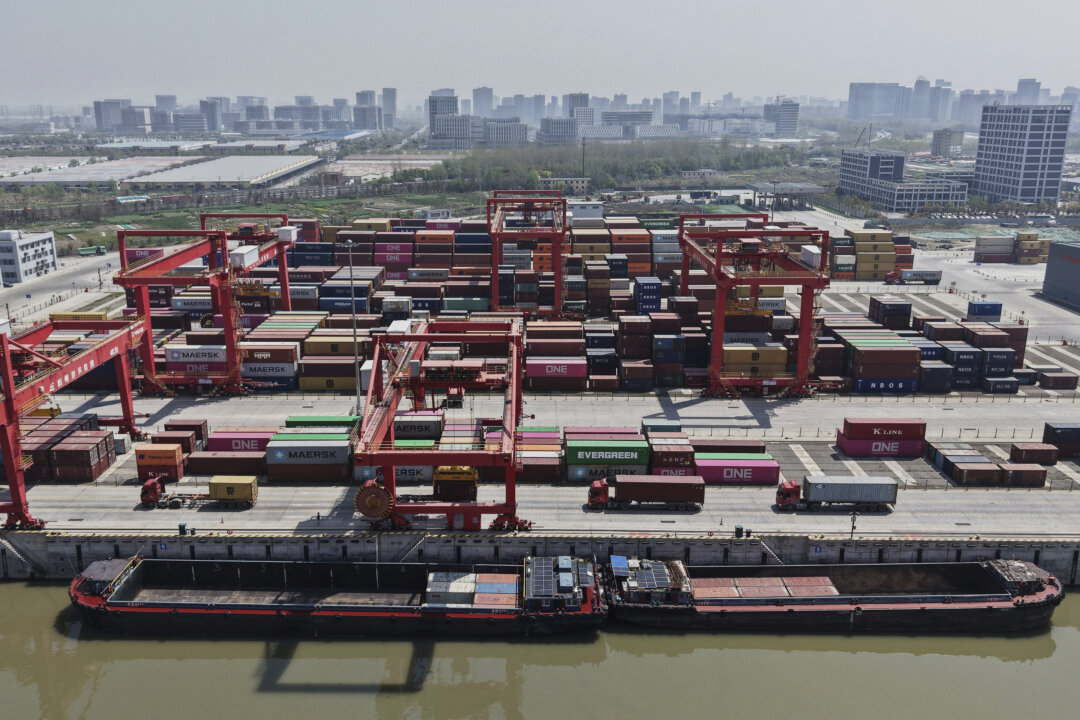Trump warned China of a 50 percent additional duty on Chinese goods if it refuses to withdraw its 34 percent retaliatory tariffs on U.S. imports.
Beijing on Tuesday criticized President Donald Trump’s threat to impose an additional 50 percent tariff on Chinese imports in response to China’s retaliatory measures against the U.S. reciprocal tariffs.
The Chinese Commerce Ministry said it would be a mistake if Trump proceeds with the extra tariffs and vowed to “fight to the end” to protect its interests.
The ministry added that it will not accept Trump’s demands and called on the U.S. government to rescind its tariff measures against China, according to its statement.
Trump warned on Monday that he would impose additional 50 percent duties on Chinese goods if China refused to withdraw its 34 percent retaliatory tariffs on U.S. imports.
Beijing’s tariffs were a response to Trump’s April 2 reciprocal tariff announcement, which raised the total U.S. tariff on Chinese imports to 54 percent.
Those tariffs on U.S. imports, Trump said, came on top of China’s “already record setting Tariffs, Non-Monetary Tariffs, Illegal Subsidization of companies, and massive long term Currency Manipulation.”
“If China does not withdraw its 34% increase above their already long term trading abuses by tomorrow, April 8th, 2025, the United States will impose ADDITIONAL Tariffs on China of 50%, effective April 9th,” Trump wrote in a Truth Social post. This would increase the tariff on China-origin products to over 100 percent.
The president also said that all trade negotiations with China “concerning their requested meetings” with his administration would be canceled if Beijing failed to rescind its retaliatory tariffs.
The administration’s 34 percent reciprocal tariffs on China—targeting currency manipulation, industrial subsidies, and other trade practices—were added to existing 20 percent duties that Trump already imposed on Chinese imports earlier this year in a bid to curb fentanyl trafficking into the United States. Together, they saw China facing a 54 percent tariff rate, affecting nearly $600 billion in annual trade.
Trump said the measures are necessary to restore trade balance. He has accused other countries of taking advantage of the United States through unfair trade practices.
Since the first round of U.S. tariffs in Trump’s second term, Beijing has launched a series of countermeasures, including placing tighter export controls on certain types of rare-earth minerals and adding more U.S. firms to its “unreliable entity list.” The blacklist targets foreign businesses that the Chinese regime deems a threat to its national security and economic development.
Trump’s sweeping tariffs have triggered volatility in U.S. and global markets, with S&P 500 stock futures dropping 4 percent and Dow Jones declining 3.8 percent on April 6, and some trade partners seeking to negotiate better trade agreements.
On April 7, Trump showed no sign of backing down from his tariff policies amid reports of a pause.
Trump on Sunday told reporters he is not looking to make a deal with China unless it addresses the “tremendous deficit problem” with the United States.
“When you look at the trade deficit that we have with certain countries, way over a billion per country, with China, [it] is trillion dollars,” he told reporters aboard Air Force One. “I’m willing to deal with China, but they have to solve their surplus.”
Some experts said that it would be difficult for the United States to compel China to meet its demands.
Christopher Balding, a senior fellow at the Henry Jackson Society, a UK-based think tank, said that Chinese Communist Party (CCP) leader Xi Jinping doesn’t want to be “seen as caving in to Trump.”
“Xi has sold himself domestically and internationally as the guy standing up to America, and people that want to stand up to America should get in line behind chairman Xi,” Balding told The Epoch Times. “It would be catastrophic for Xi to be seen as caving in to Trump in any way.”
Andrew Moran and Terri Wu contributed to this report.

